Exclusive
The incorruptible ones are not yet born
Published
9 years agoon
By
Olu Emmanuel
Nigeria has got a painful corruption migraine and a president who desires to fix it. But how far beyond the President does this commitment extend?
By GBENGA OGUNDARE
WHAT do you do to a man who made your wife go through hell in the custody of fierce sleazehounds who grilled her on end for being complicit in a painstakingly scripted offshore financial crime? How do you relate with an unyielding cop who’s got in his claws all the damaging dossiers about you-including your role in the looting of the moribund Societe General Bank of Nigeria and Kwara state while a governor for eight years— as well as other sleaze angels closest to your heart?
Senate President Bukola Saraki and those former governors now using the National Assembly as their refuge home can swear on their stolen wealth the feeling would be nothing but hatred and vendetta, especially if this kill joy of a cop is Ibrahim Mustapha Magu, the acting Chairman of the Economic and Financial Crimes Commission, EFCC!
But that’s not all about the bad tidings Magu’s remorseless knack for exhuming buried sleaze can fetch him yet. in fact, the nemesis can only get more virulent with Attorney-General of the Federation, Abubakar Malami also sticking out like a sor thumb in the coup against Magu. The AGF is equally said to be griping that the heady EFCC boss has refused to take directives from him regarding issues of who to prosecute or not in the anti-corruption campaigns–a power tussle that propelled the AGF to set up a national prosecution committee domiciled in his office.
Corruption Versus Corruption
It’s a long list of tragic flaws haunting Magu really. But move over the other conspiracy theory that President Muhammadu Buhari’s Chief of Staff, Abba Kyari is also upset with the cop for refusing to drop investigations against his friend, Jide Omokorewho is said to be a beneficiary of several corrupt oil swap deals carried out under former Petroleum Resources Minister, Deziani Alison Madueke.
The EFCC boss is not a saint after all, announces the Senate December 2016.
“The Senate wish to inform the public that based on available security report, the Senate cannot proceed with confirmation of Ibrahim Magu as the Chairman of the Economic and Financial Crimes Commission”, Aliyu Sabi Abdullahi, spokesperson of the upper legislative chamber, told Nigerians following a rowdy executive session.
“The nomination of Ibrahim Magu is hereby rejected and has been returned to the President for further action,” announced Abdullahi.
Magu, according to the security report that bombed his confirmation as substantive Chair of the EFCC on the floor of the Senate, was alleged to have hobnobbed and rode in a private jet belonging to a businessman found to be corrupt. It was also claimed, in the report, that this same money-bag picked the bill for Magu’s official quarters.
Parts of the report authored by the Department of State Security (DSS) read as follows:
“Magu is currently occupying a residence rented for N40M at N20M per annum. This accommodation was not paid for from the commission’s finances, but by one Umar Mohammed, air commodore retired, a questionable businessman who has subsequently been arrested by the secret service.
“For the furnishing of the residence, Magu enlisted the Federal Capital Development Authority to award a contract to Africa Energy, a company owned by the same Mohammed, to furnish the residence at the cost of N43M.
“Investigations show that the acting EFCC chairman regularly embarked on official and private trips through a private jet owned by Mohammed.
In one of such trips, Magu flew to Maiduguri alongside Mohammed with a bank MD who was being investigated by the EFCC over complicity in funds allegedly stolen by the immediate past petroleum minister, Diezani Alison-Madueke.
“Furthermore, the EFCC boss has so far maintained a high profile lifestyle. This is exemplified by his preference for first class air travels. On 24 June, 2016, he flew Emirate airlines first class to Saudi Arabia to perform lesser hajj at the cost of N2.9M.
This is in spite of Mr. President’s directive to all public servants to fly economy class”.
Media verification would later find some of these claims to be untrue. Documents cited by an investigative online newspaper, PREMIUM TIMES, showed the Federal Capital Development Authority, based on its stator responsibility, might have paid for the official quarters.
So it’s only natural for anyone to allege conspiracy against Magu in the meantime, at least until a competent court decides what is true or false about the allegations and counter-allegations.
Mutually Assured Destruction
Never mind that critics of Nuhu Ribadu, too, have accused him of pursuing cases only against enemies of former President Olusegun Obasanjo and leaving his friends untouched; or that the pioneer EFCC boss at some point had a charged pinned on him for not declaring his assets while in office.
Perhaps all of that can still be brushed aside as part of the grand conspiracy against the anti-graft war in Nigeria really. But not with Nuhu Ribadu and Farida Waziri stunning Nigerians recently with lurid details of their less than wholesome stewardship while they held sway at the EFCC in recent years.
December 2016 at a public lecture in Abuja, Ribadu told Nigerians Waziri “inflicted serious damages on the EFCC from which the commission is still struggling to recover”.
Ribadu groaned that corrupt practices that were unheard of became widespread in the Commission with Waziri in the helm, and outside lawyers were brought in to handle very important cases that sometimes were turned into avenues of making money.
But Waziri, in response to Ribadu’s claims that she was an obstacle to the fight against corruption, also told Nigerians that Ribadu is now enjoying the wealth of people he once labelled as corrupt. Not only that, Waziri also challenged her predecessor to account for the booties seized by the EFCC under Ribadu.
“There is also the need to remind Nuhu Ribadu that before he succumbs to another logorrhea, he should avail himself a copy of the investigative report on recovered assets during his tenure as EFCC Chairman and use the opportunity of the next naming ceremony or birthday party he is invited to, to explain to Nigerians what happened to billions of funds and assets recovered from suspects under him, with no records or documentation. He should be grateful to me that I cleaned his mess by creating an Assets Forfeiture Unit to put the records straight and do things rightly.
“It is his lust for power, inordinate ambition and desperation for political relevance that continue to push him to dine and wine, and even enjoy the wealth of those he had labelled as corrupt in yesteryears. He can’t hold me responsible for his double face, lack of principle and complex contradictions in his character.
“No matter how hard Nuhu tries to obliterate my tenure with his numerous lies, the record of over 450 convictions secured during my three and a half year sojourn in EFCC remains indelible. Though I inherited about 10 high profile cases from him in 2008, we took over 75 of such high profile cases to courts, with another 1,500 low profile cases pending in courts as at my exit in November 2011.”
Whatever happened to the funds and asset Waziri alluded to in her reaction to Ribadu’s “reckless and irresponsible’ name-calling is a matter of conjecture for now. But the truth is the EFCC, even under its third Chairman, Ibrahim Lamorde, was not spared its share of unsettling scandals, including allegations of criminal diversion of seized funds and assets running into N1 trillion slammed on Lamorde, as well as corrupt enrichment by officers of the commission.
Again, maybe the N1 trillion scandal is not exactly true, because Lamorde told Nigerians that even if all the money recovered by the EFCC was added up, together with its funding from government, it would not total N1 trillion.
“How can we divert an amount we don’t have?” he asked.
“We want to have a comprehensive report that could stand the test of time… from the day the commission was created in April 2003 to date… so that we can put it in [a] public space and any person who has issues with that can challenge it.”
Lamorde never made good his words till he was eased out of office in November 2015.
The Dilemma of A Straitjacket President
Former British Prime Minister David Cameron made headlines ahead of the much-hyped anticorruption summit hosted in London May 2016 when he was caught on camera tearing Nigeria apart as “fantastically corrupt.”
President Muhammadu Buhari, notwithstanding the unflattering verdict, got a support in the Archbishop of Canterbury who told the impulsive PM that, actually, current Nigerian President Muhammadu Buhari, who campaigned on an anticorruption platform, is not corrupt.
But almost a year later, not a few Nigerians will disagree with the gentleman Archbishop. And their cynicism would have been justified by the President’s apparent inability to scapegoat the corrupt aides in his kitchen cabinet.
A case in point is the Secretary to the Government of the Federation, Babachir Lawal. Despite corruption allegations by the Senate against the SGF over his misappropriation of the funds meant for victims displaced by the Boko Haram terror group, which has led to their starvation and sexual exploitation, he is in Buhari’s government still. He has not resigned or be forced by the president to do so despite the position of the Senate that he must quit.
That’s part of the syndrom taunting the anti-graft crusades really. It’s unheard of to see public officials accused of corruption in Nigeria step aside for investigations to take place.
A Panacea in Sight
President Buhari has promised to link the public and private sectors in his efforts to ensure information sharing between law enforcement and the financial sector. He needs to do so soon to prove to the electorates and the West he is serious about the anti-corruption war in Nigeria.
But first he must coordinate and strengthen agencies whose mandates impact on the anti-corruption crusade.
Nigeria has about five commissions, bureaus, and tribunals vested with the power to investigate and prosecute corrupt practices. But the existing legal and administrative frameworkincluding questions about the role of the attorney general in cases brought by these agenciesmakes coordination extremely difficult. It is therefore important to provide clear administrative framework that makes for more effective and cordial relationships among these institutions.
But more importantly, no matter how good the President’s strategy is, deliberate engagement with non-state actors is equally important to the success of the anti-corruption campaigns. Without this synergy, a more open and accountable Nigeria might just be a fantasy.
You may like
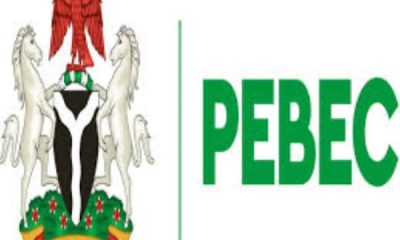

FG Launches Ports Customs Efficiency Committee to Boost Trade, Cut Red Tape


EFCC arraigns 16 suspected internet fraudsters in Enugu
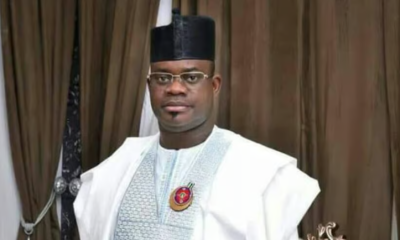

Finally, EFCC arrests former Kogi Gov Yahaya Bello
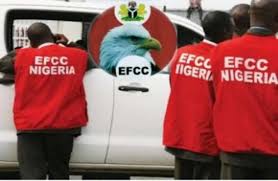

Supreme Court reserves judgment in 19 states’ suit challenging EFCC legality
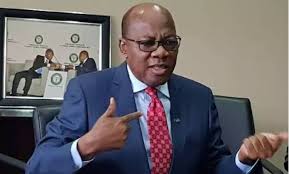

EFCC not constitutionally established agency – Agbakoba
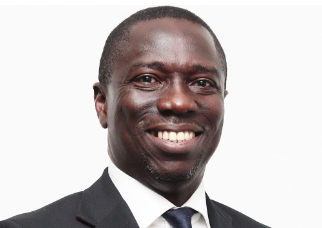

Ighodalo confident in Judiciary as He challenges Edo Governorship election results
Trending

 Latest4 days ago
Latest4 days agoYoruba film industry mourns as popular actress aunty Ajara passes away

 Trends5 days ago
Trends5 days agoTonto Dikeh reunites son with Churchill after decade-long split

 Business6 days ago
Business6 days agoRite Foods positions industry as catalyst for Nigeria’s clean energy transition

 Football6 days ago
Football6 days agoArsenal’s Osman Kamara completes permanent move to Blackburn Rovers

 Health6 days ago
Health6 days agoControversial preprint revives vaccine–autism debate, draws sharp pushback from medical experts

 Featured7 days ago
Featured7 days agoMidnight raids, teargas: Lagos deploys military-era tactics in mass evictions

 Football5 days ago
Football5 days agoEPL: Confirmed transfer deadline day deals in January 2026

 Business6 days ago
Business6 days agoCBN releases fintech report, maps growth, opportunities, risks in Nigeria’s digital finance sector

